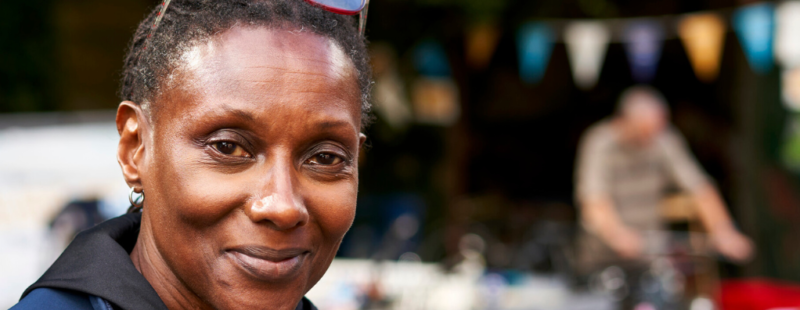Living with cancer brings many challenges for those affected – and one particularly difficult challenge can be coping with the social and emotional isolation associated with the disease. Each year around 150,000 people over 50 are diagnosed with cancer, and our research suggests 1 in 5 people over 55 with cancer will lack support at home during treatment and recovery. With the number of older people living alone set to grow, we must face up to this issue now. The following guest blog by Ciaran Devane, Chief Executive of Macmillan Cancer Support, has been written to complement our new collection of essays, ‘Alone in the Crowd: Loneliness and diversity’.
“Too young, too old, too far away.”
There are many reasons why older people with cancer may lack support. Busy lives and distant homes can make it hard for families to provide help. Sometimes the distance is not physical, but emotional. Talking about the anxieties and uncertainties of cancer treatment can be difficult, and friends and family may be unsure how to respond or offer help.
The loneliness of treatment
People with cancer often undergo complex and lengthy treatment that can contribute to isolation. Surgery, radiotherapy and chemotherapy can leave people feeling ill and exhausted. Some treatments may involve the use of radioactive substances that mean people give off radiation for a short time, so they cannot be physically close to their loved ones. Those with compromised immune systems after bone marrow transplants can face days or weeks in an isolation unit.
The aftershock
If someone’s cancer treatment is successful, they may expect to feel euphoric afterwards. But there can be an unexpected aftershock following the loss of regular interaction with their healthcare team, which can feel like a safety net has been taken away.
Some people feel lost, abandoned and isolated – and may feel guilty for experiencing any negative feelings at all. Many have long-term physical effects that can reduce their quality of life and self-confidence, such as incontinence or surgical scars.
And if treatment doesn’t work – more than 2 in 3 of those who develop cancer will still go on to die of the disease – then people may also face loneliness as they approach the end of their lives.
Teaming up
At Macmillan, we’re determined to make sure no-one faces cancer alone.
We believe technology is one way to bring people together. Already 79,000 people affected by cancer use our online forums, and we’re working with Skype to develop a service helping those with cancer to connect and share experiences.
In Brighton & Hove, we’re piloting the innovative ‘Team Up’ scheme, building a website bringing people with cancer together with people with time to help out with small errands.
No-one who gets cancer should face it alone – and together we can ensure no-one will.




No comments on this article yet. Please feel free to submit a comment below.
By submitting a comment you grant Campaign to End Loneliness a perpetual license to reproduce your words and name/web site in attribution. Inappropriate and irrelevant comments will be removed at an admin's discretion. Your email is used for verification purposes only, it will never be shared.